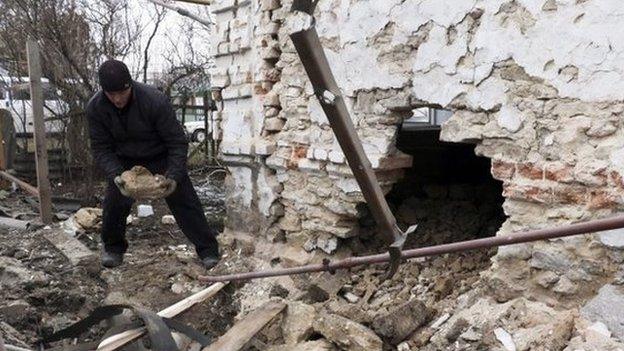US 'to quadruple defence budget for Europe'
- Published
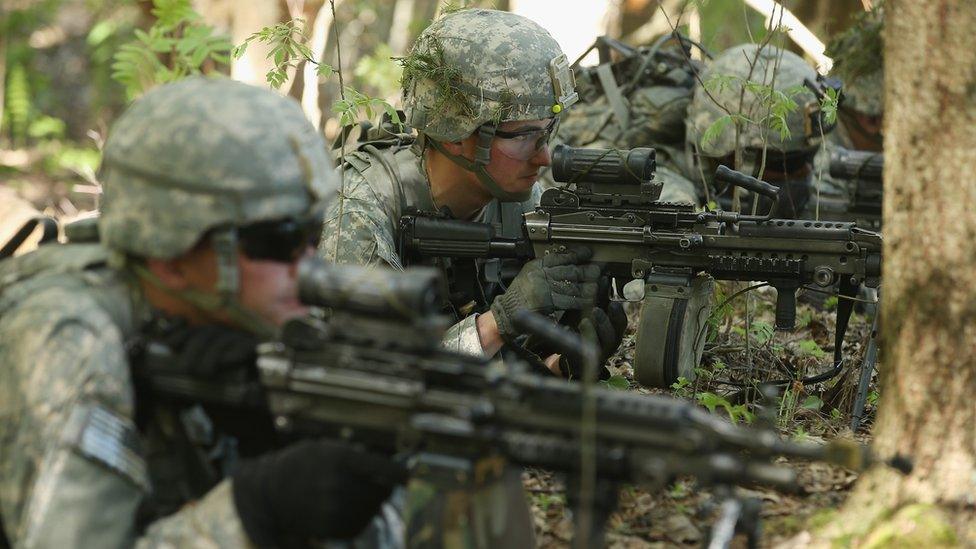
The Pentagon plans to carry out more training with European allies
The Pentagon is to propose quadrupling its budget for European defence in 2017 in the light of "Russian aggression", US Defence Secretary Ash Carter says.
He described Russia as a growing challenge for the US.
Relations between Russia and the West have plummeted since Russia annexed the Ukrainian peninsula of Crimea in March 2014.
The Pentagon will also propose a 50% increase in spending on the campaign against so-called Islamic State (IS).
Mr Carter said US forces engaged in an air campaign against IS in Iraq and Syria were "starting to run low" on laser-guided missiles and "smart bombs".
Moving closer to a new Cold War
"So we're investing $1.8bn (£1.2bn) in 2017 to buy over 45,000 more of them," he said in a speech to the Economic Club of Washington.
On Europe, Mr Carter said increased funds would allow greater numbers of troops to be deployed to European bases, as well as more training and exercises with allies.
"We're taking a strong and balanced approach to deter Russian aggression," he said. "We haven't had to worry about this for 25 years, and while I wish it were otherwise, now we do."
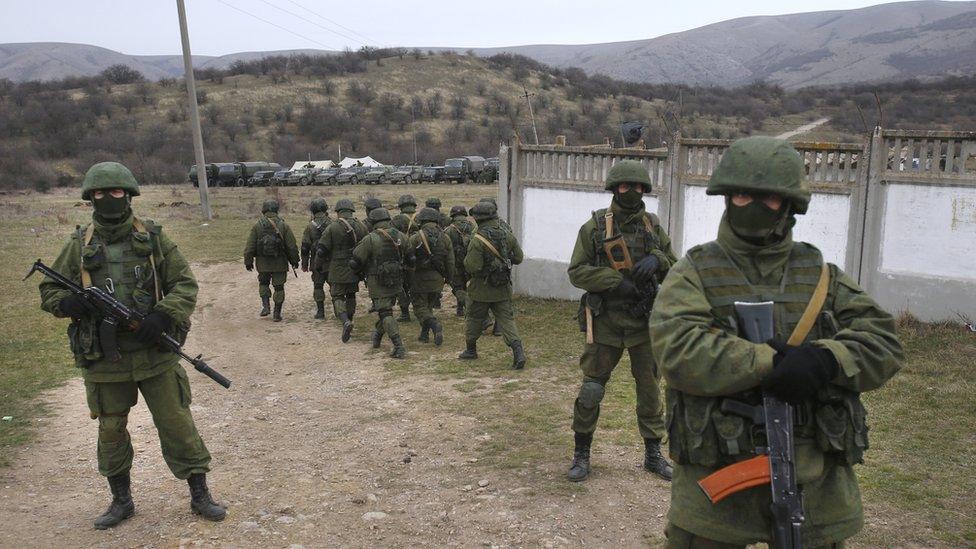
Russia's annexation of Crimea in 2014 caused alarm in Eastern Europe
The Pentagon's proposed 2017 defence budget will include $3.4bn for its European Reassurance Initiative - up from $789m for the current budget year.
The initiative is to demonstrate US commitment to its Nato allies in Europe amid increasing concern about Russia's intentions after its military involvement in Ukraine.
On a trip to Eastern Europe last year, Mr Carter announced that the US would position 250 tanks, armoured vehicles and other military equipment across six former Soviet bloc nations.
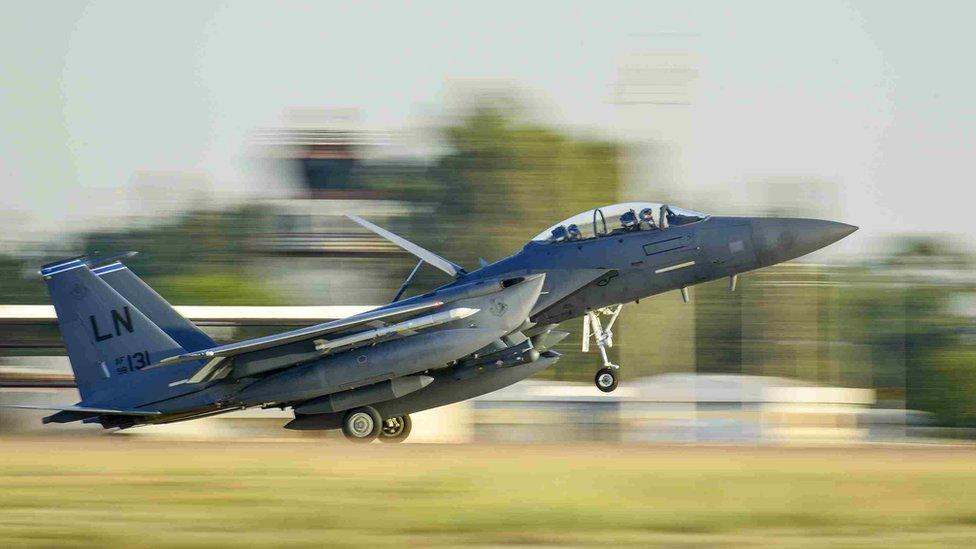
US warplanes are among those targeting IS in Syria and Iraq
He also pledged more weapons, aircraft and troops for Nato's new rapid reaction force.
As well as Russia, Mr Carter highlighted Chinese assertiveness over disputed islands in the South China Sea as a growing concern for the US.
"Key to our approach is being able to deter our most advanced competitors," he said.
"We must have - and be seen to have - the ability to impose unacceptable costs on an advanced aggressor that will either dissuade them from taking provocative action or make them deeply regret it if they do."
Mr Carter also said the Pentagon aimed to spend $8.1bn on undersea warfare systems in 2017 and more than $40bn over the next five years.
He was speaking a week ahead of the formal rollout of the Pentagon's 2017 budget.
Overall, the administration is to seek $582.7bn for the next financial year, compared with $585bn for the current year.
- Published24 June 2015
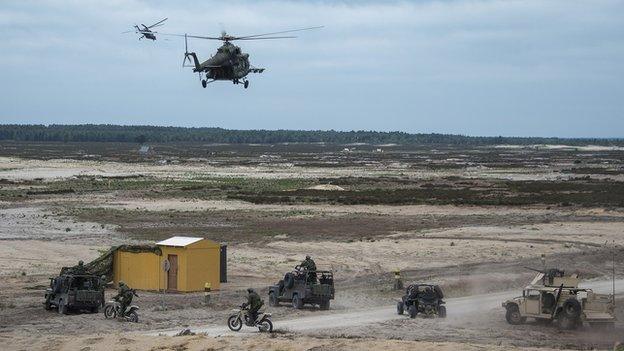
- Published15 June 2015
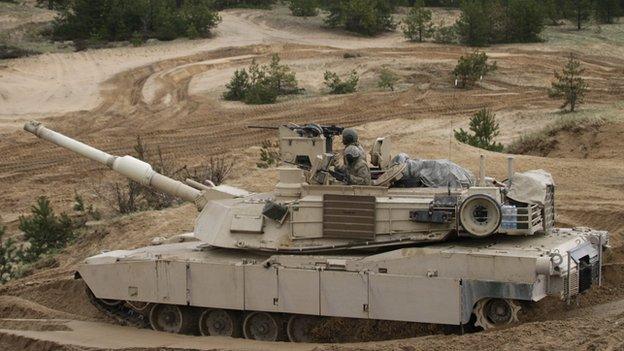
- Published5 February 2015
